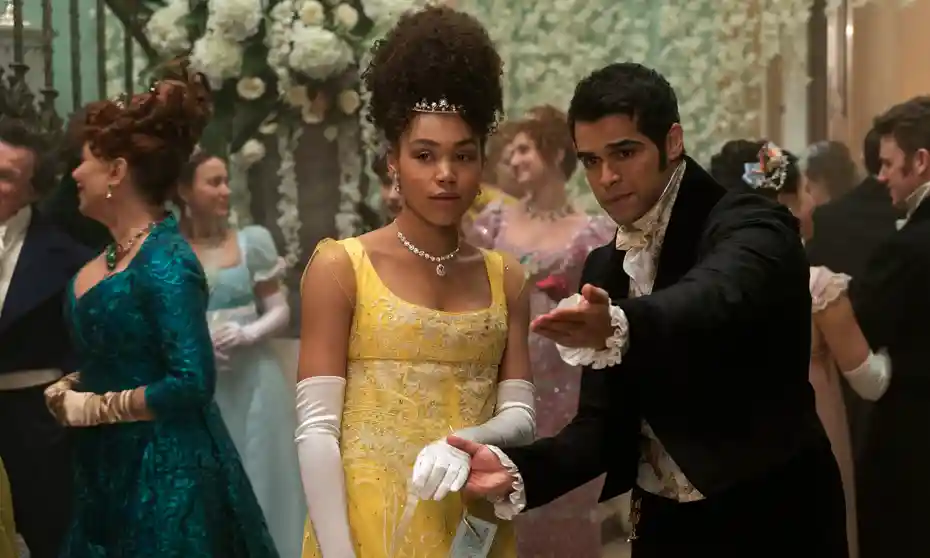‘Bridgerton’ Review: Why is it so popular and is it worth the hype?

Despite only being released on 25th December 2020, Bridgerton became Netflix’s fifth most-watched original launch, with over 63 million households tuning in to watch the regency drama unfold. Based on the novels by American author Julia Quinn, the series follows the influential Bridgerton family during the eventful social season as they navigate the competitive world of love, status and expectation.
Broadcast amidst tighter lockdown restrictions in the UK, the series benefits from a nationwide desire for escapism. At the centre of the story, is the relationship between favoured debutanté Daphne Bridgerton (Phoebe Dyvenor) and bachelor Simon Bassett (Regé-Jean Page), whose connection is formed on the basis of a relationship ruse. The relationship between the two leads is convincing but also flawed, which adds a level of depth and relatability to the characters which is not always present in period dramas.
However, it is the strength of the ensemble cast that secures the series’ longevity. The characters are likeable and engaging, with unique story arcs which are already being set up for the second series. Daphne and Simon’s story is largely concluded by the finale, but the audience is left with a desire to see the stories of the secondary characters develop. The Lady Whistledown subplot, narrated by the revered Julie Andrews, ties the whole Bridgerton universe together and ensures that the drama is not only limited to the two lead characters.
Although largely lighthearted in tone, under the guise of bright costuming and elaborate balls the series also highlights some serious topics. The precarious position of women is explored through the competitive nature of the marriage market and it exposes many women’s lack of autonomy in their destiny. Similarly, although the younger women in Bridgerton are often strong-willed and passionate, they are also extremely vulnerable and largely ignorant of the society which awaits them.
Despite its clear popularity, the series has not been without criticism. There has been some questioning over the historical accuracy and diversity of the series, to which Julia Quinn responded ‘’I’ve been dinged by the accuracy police – but it’s fantasy!’ The beauty of the series is its ability to include and immerse a wide audience. It combines all the elements of successful period dramas; the ball sequences, the country houses and central love arc, without feeling restricted or stagnant. When adapting a Jane Austen novel, you are limited by the notoriety of the characters, the language and the story. An example being the 2020 version of Sanditon, Austen’s unfinished novel, which was met with backlash over its uncharacteristic ending. Therefore, unlike Austen, Quinn’s novels are more flexible, they maintain the regency appeal whilst successfully incorporating modern inspirations from other eras. Bridgerton isn’t afraid to push the boundaries of what is expected of a period drama with its polarising sex scenes quickly revealing to the audience that the series would be multifaceted and unimpeded by convention.
Bridgerton pays homage to the beloved elements of period dramas, whilst still feeling fresh and engaging. Its diverse and charming cast is complemented by the immersive and romantic setting, which appeals to both serial period drama lovers and new fans of the genre. Ultimately, the series temporarily distracts us from the bleak state of the world and reiterates the utter joy and importance of the arts in providing entertainment even in the darkest of times.
